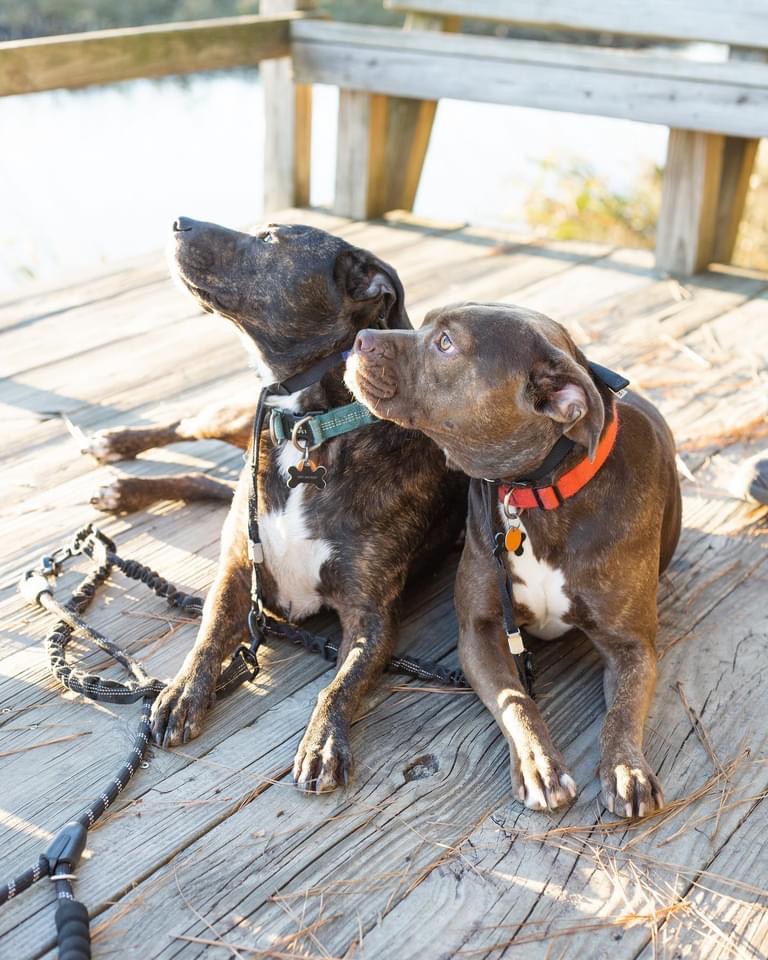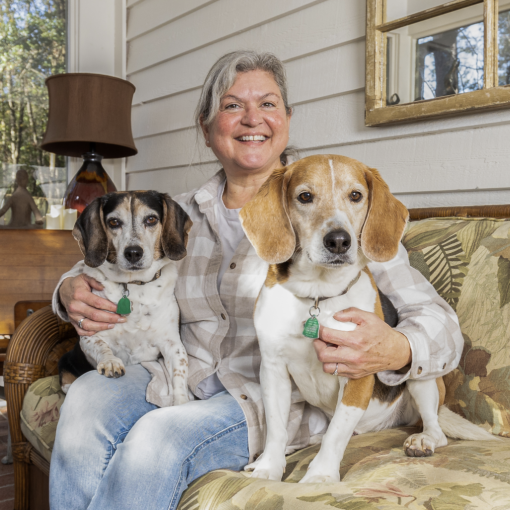Myths about big dogs being dangerous or unable to be around children are simply not true. With proper training and socialization, big dogs can be great family pets. Just ask the Campbells of North Charleston.
wJake Campbell is a Coast Guard Gunner’s Mate, and his wife Michelle works in a local psychiatry office. Despite a busy professional life and having a two-and-a-half-year-old daughter Georgia, the Campbells adopted two big dogs from Charleston Animal Society.
“I wasn’t concerned about adopting a big dog,” Michelle said. “It comes down to how you are with your dog. It comes down to training.”



A year before Georgia was born, the Campbells adopted Jasmine, a 50-lbs. retriever mix. Then, before Georgia turned two, Jasmine got a brother, 50-lbs. pittie-mix Rocky. The two keep each other entertained and Michelle says they know little Georgia is their boss.
“My daughter attempts to walk them. She gives them food and tells them to stay. It’s teaching her responsibility,” Michelle said.
Adopting big dogs can be an excellent choice for families for several reasons. First and foremost, big dogs can make great companions for both children and adults alike. Contrary to popular myths, big dogs can be wonderful around children if they are properly trained and socialized.
Here are some reasons why adopting big dogs can be good for a family:
- Big dogs are often gentle giants: While it's true that big dogs can be physically imposing, they can also be very gentle and loving animals. In fact, many large breeds such as the Great Dane, Newfoundland, and Mastiff are known for their gentle and calm temperaments. These dogs can be great around children, as they are often patient and tolerant.
- Big dogs can be protective: Another advantage of having a big dog is that they can be very protective of their families. Many large breeds, such as the German Shepherd and Rottweiler, were originally bred for guarding and protecting. This means that they can be very loyal and devoted to their owners and can provide a sense of security for families.
- Big dogs can be great exercise partners: Many big dogs require a lot of exercise, which can be a great way for families to get outside and be active together. Taking a big dog for a walk or run can be a fun and healthy way to spend time together as a family.
- Big dogs can be good role models for children: Having a big dog can teach children about responsibility, compassion, and respect for animals. Children can learn to care for and train the dog, which can be a valuable learning experience.
While it is true that any dog, regardless of size, has the potential to be dangerous if it is not properly trained and socialized, there is no evidence to suggest that big dogs are inherently more dangerous than smaller dogs. As Michelle shared, “The only dog I was ever bitten by was a chihuahua.”





